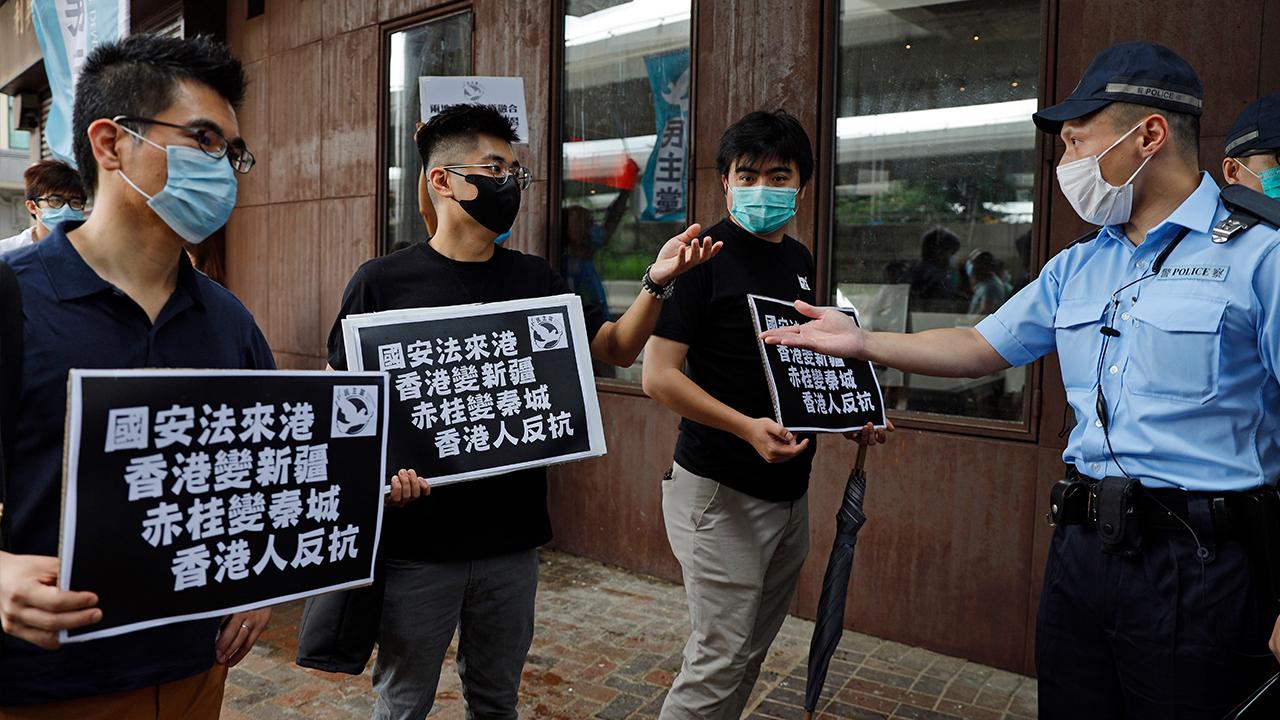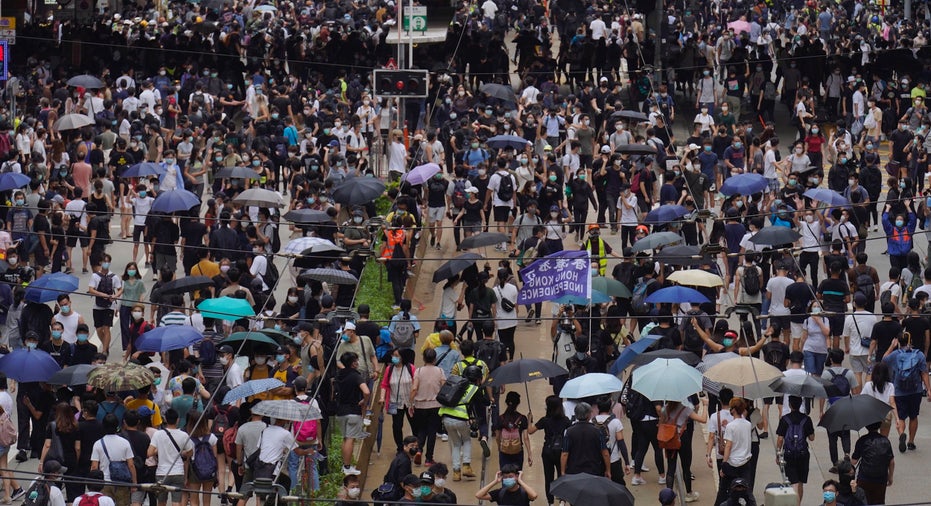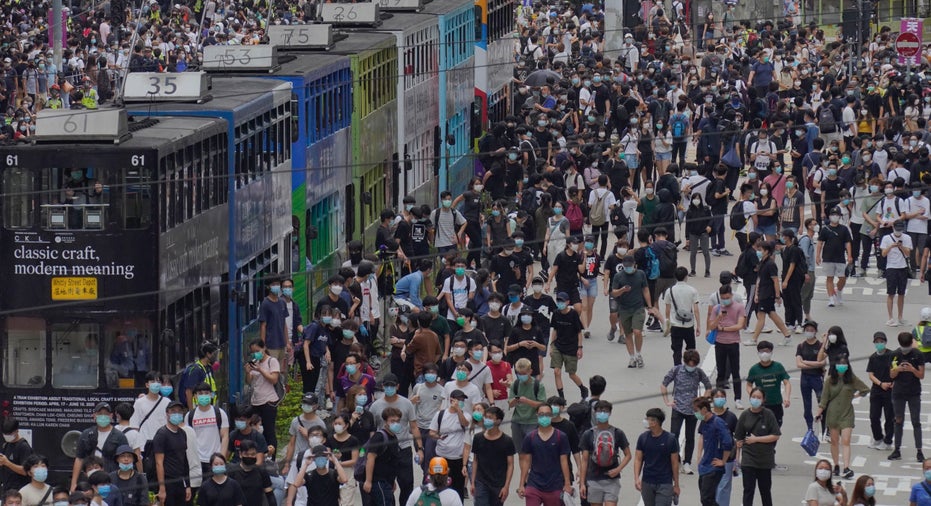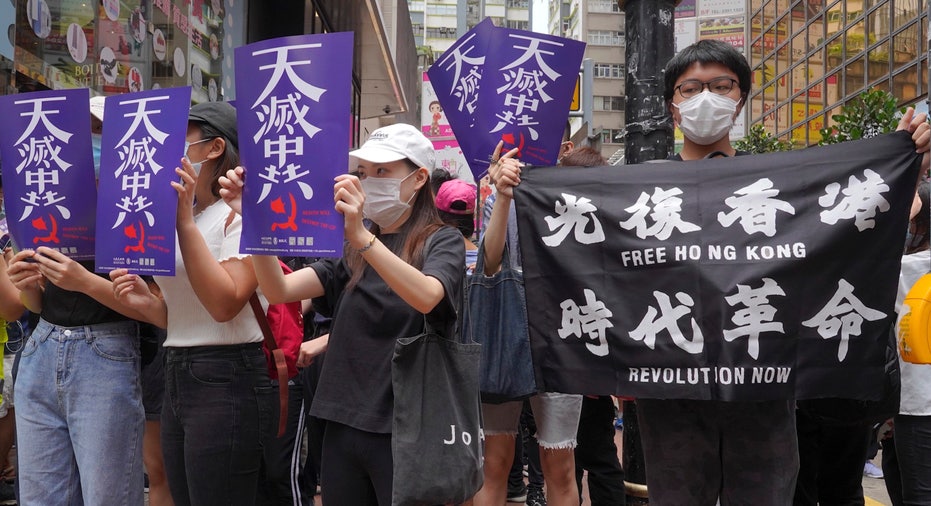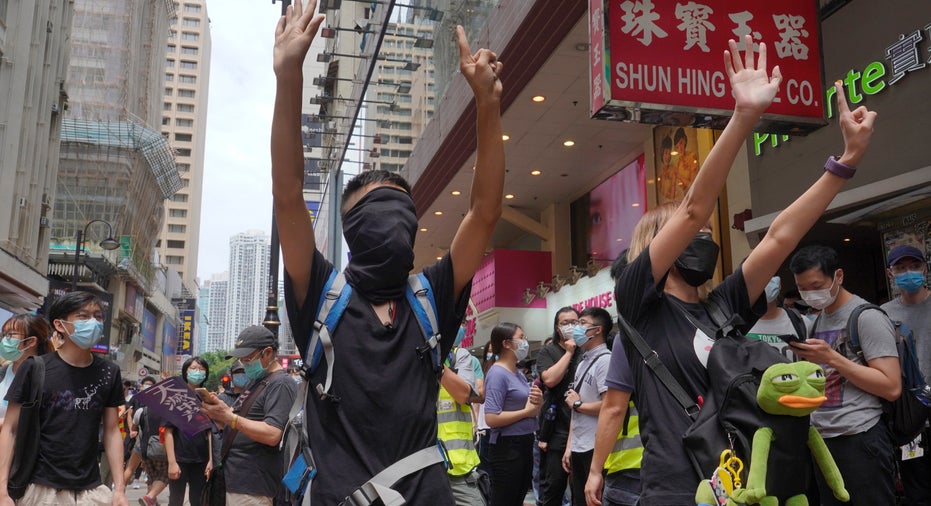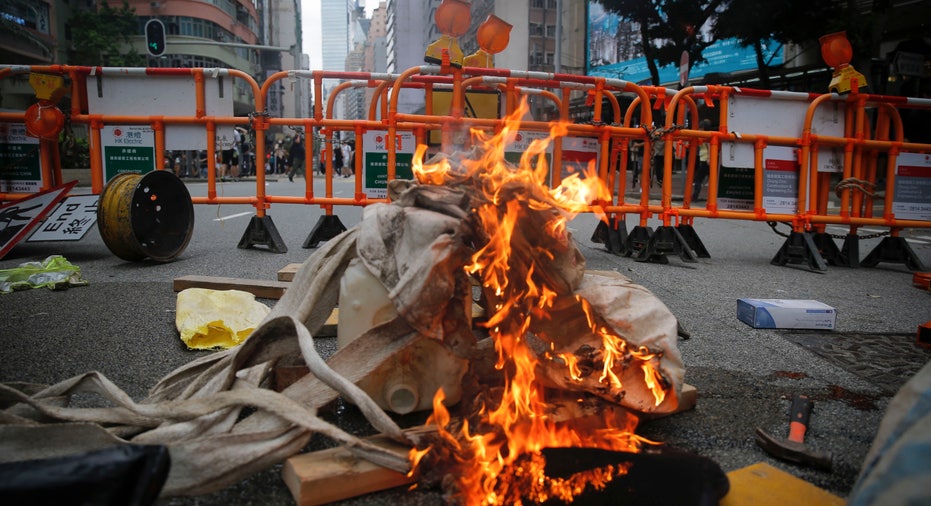China sanctions 'likely' over Hong Kong national security law: White House
Thousands of Hong Kong citizens took to the streets Sunday to protest the controversial measure
National Security Adviser Robert O'Brien warned on Sunday that the United States may impose sanctions if China goes through with a controversial national security law that would put Hong Kong's independence at risk.
"It looks like with this national security law, they're going to basically take over Hong Kong," O'Brien told NBC's "Meet the Press." "If they do, under the 1992 Hong Kong Policy Act and the Hong Kong Human Rights and Democracy Act of 2019, Secretary Pompeo would likely be unable to certify that Hong Kong maintains a high degree of autonomy. And if that happens, there will be sanctions that will be imposed on Hong Kong and China."
U.S. Secretary of State Mike Pompeo said in a statement on Friday that any decision "impinging on Hong Kong’s autonomy and freedoms as guaranteed under the Sino-British Joint Declaration and the Basic Law would inevitably impact our assessment of 'One Country, Two Systems' and the status of the territory."
HONG KONG, POLICE FIRE TEA GAS, WATER CANNON AT PROTESTERS
The measure, which goes against Hong Kong’s Basic Law that says such proposals must be passed by the city government, would quash the "one country, two systems" principle that has allowed the global financial hub to flourish since Britain's 1997 handover to China. It also would jeopardize Hong Kong's access to sensitive U.S. technologies it has received under the 1992 U.S.-Hong Kong Policy Act and would subject the city to tariffs from the United States.
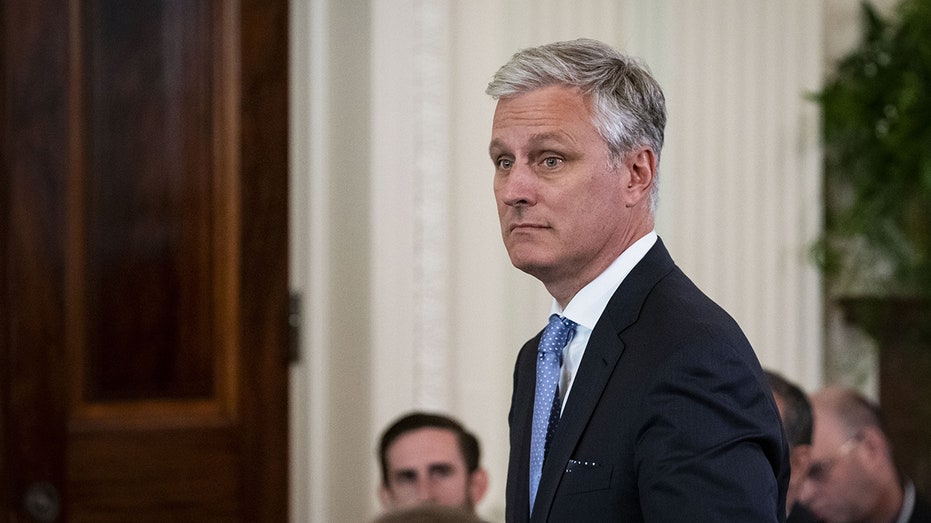
National Security Adviser Robert O'Brien. (Photographer: Al Drago/Bloomberg via Getty Images)
O'Brien also said that global corporations could potentially pull out of China's financial markets in response to the security law, making it difficult for Hong Kong to remain "the Asian financial center that it's become."
"I just don't see how they can stay. One reason that they came to Hong Kong is because there was the rule of law there, there was a free enterprise system, there was a capitalist system, there was democracy and local legislative elections," O'Brien said. "If all those things go away, I'm not sure how the financial community can stay there."
CHINA'S TEPID TRADE-DEAL SPENDING LEAVES US FARMERS IN LIMBO
He added that China is dependent on capital from the rest of the world to build its economy and grow its middle class and that losing that financial support over the security bill would be detrimental.
"They're dependent on liquidity and financial markets," O'Brien said. "If they lose access to that through Hong Kong, that's a real blow to Xi Jinping and the Chinese Communist Party side. I hope they'll take that into account as they contemplate their next step."
On Sunday, thousands of Hong Kong citizens took to the streets to protest the measure.
Pro-democracy protesters march during a protest against Beijing's national security legislation in Hong Kong, Sunday, May 24, 2020. Hong Kong's pro-democracy camp has sharply criticized China's move to enact national security legislation in the semi-autonomous territory. They say it goes against the "one country, two systems" framework that promises the city freedoms not found on the mainland. (AP Photo/Vincent Yu)
O'Brien praised the protestors for standing up for the rule of law.
"I think what we can all be proud of are the people of Hong Kong who have taken to the streets to to show all of us who enjoy democracy and the rule of law in our countries how precious that is," O'Brien said. "They're out in the streets this weekend demonstrating that they want to be free people and they want to elect their own leaders and have the right to worship as they see fit and earn a living the way they see fit."
GET FOX BUSINESS ON THE GO BY CLICKING HERE
He believes that if the bill is passed and Beijing is given control, Hong Kong's people will leave the city.
CLICK HERE TO READ MORE ON FOX BUSINESS
"They're not going to stay in Hong Kong to be dominated by the People's Republic of China and the Communist Party," O'Brien said. "So I think if China goes through it and imposes its law, which I think could be a big mistake, I think it's gonna be very difficult for the people of Hong Kong."




















